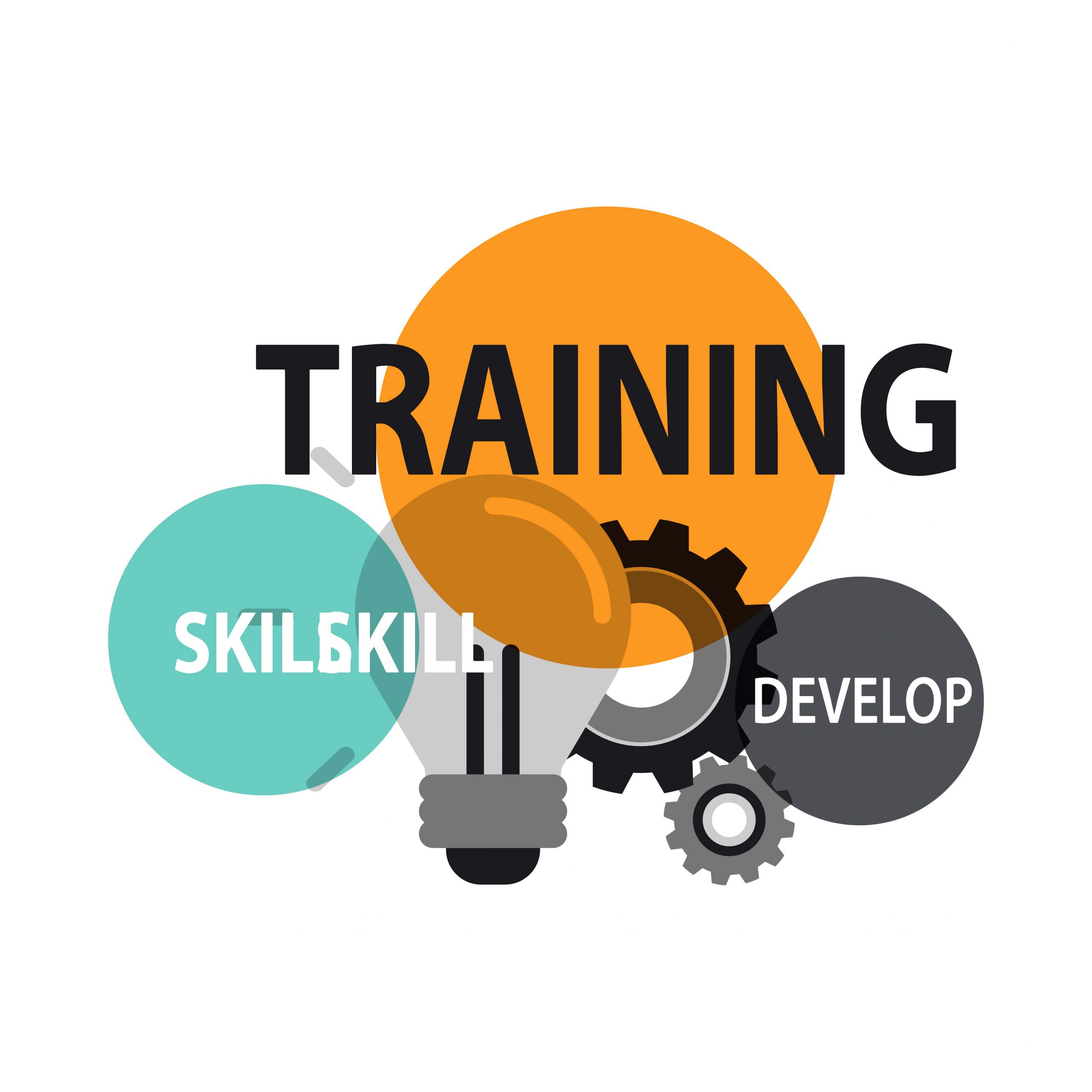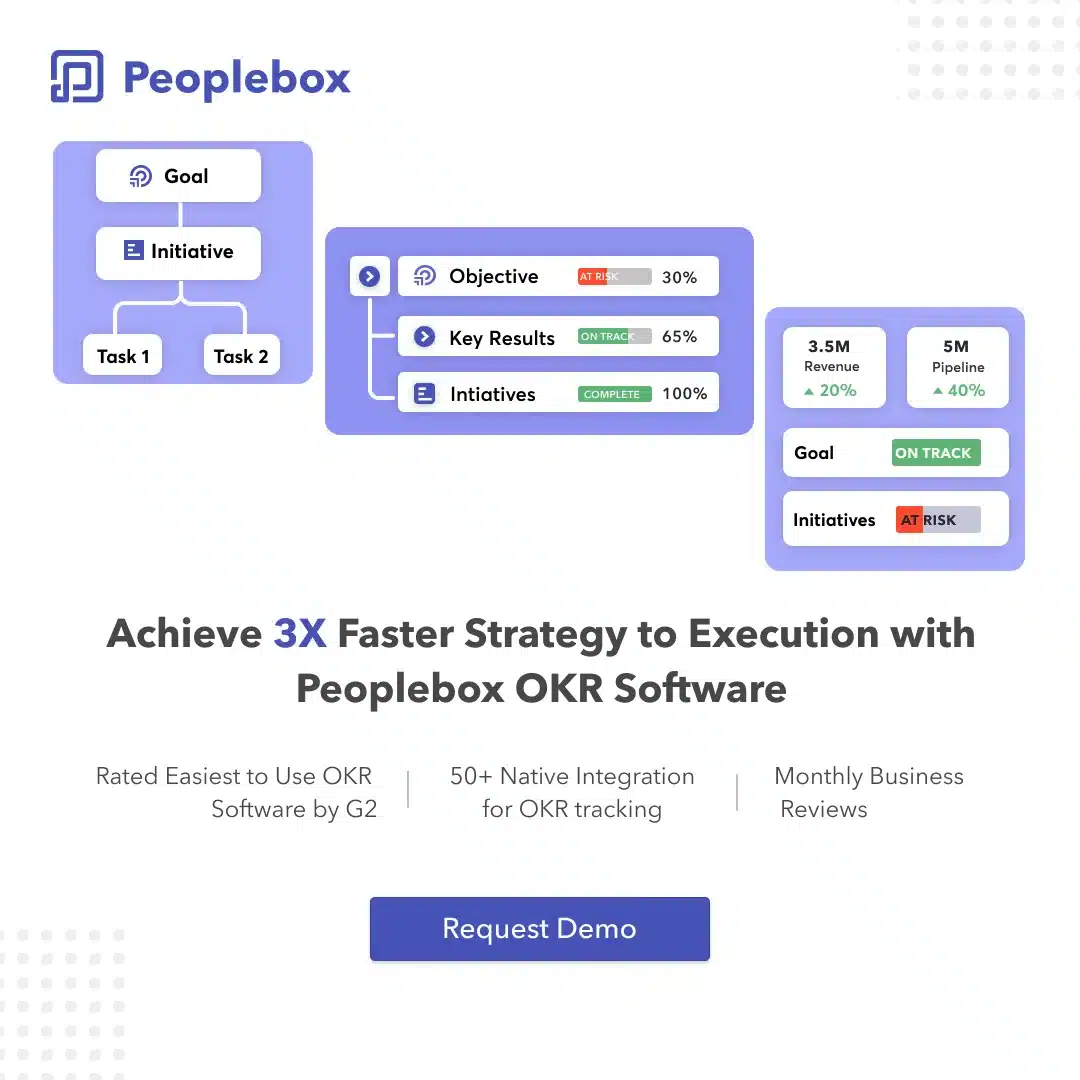Meet Andy and Laura. They both work as remote employees but Andy has constantly been looking for new opportunities.
Laura, on the other hand, sees herself working for her current company for a long time.
Her company ensures that she has a clear vision of her role in the future and constantly invests in her skill development.
Andy’s relationship with his organization is purely transactional with no real communication about his future goals and skills.
Unlike Andy, Laura resonates with her organizational vision and feels valued for her work.
What makes her identify and remain committed to her organization is her company’s initiative towards her career development.
Studies suggest that ongoing career conversations and a solid career development plan can boost an employee’s morale and increase employee engagement.
Drafting a career development plan for your employees indicates that you value your employee’s growth and consider them a part of your long-term plan.
A career development plan in remote work is all the more important as most of the organizations are operating on a work-from-home basis.
So, to help you figure out the intricacies of a career development plan, we will be exploring its details and why you should give it more importance when dealing with your remote employees.
how to boost employee morale
What is a career development plan?
A career development plan is a detailed document containing an employee’s short-term and long-term goals along with planned formal and informal training and simulations to achieve them.

A career development plan helps in defining a clear career progression path for employees.
They also help managers in having a clear roadmap for organizational growth as they can build candidates for bigger roles and responsibilities.
A career development plan can also help a manager in gaining their employee’s trust and build a loyal and trustworthy team.
Why is a career development plan important for remote employees?
Studies suggest that the majority of the employees believe that remote work is the new normal post Covid-19.
Clearly, the future of the workforce is definitely remote.
A recent poll by Gartner revealed that 48% of the employees are more likely to shift to remote work for at least part-time post the Coronavirus pandemic than as compared to only 13% of them before it.
Hence, managing remote employees and mentoring them in their career has become an even more prominent part of a manager’s role.
Setting a well-defined career development plan for your remote employees can make managing, mentoring and engaging your remote employees easier for you.
There’re many benefits that a career development plan can have. Let’s discuss the major ones in the following points –
1 Skill development and knowledge enhancement
Through training and learning modules enforced by a career development plan, you can help your remote employees gain new skills and increase their knowledge base.
From your organizational process to domain knowledge, a career development plan can help remote employees gain expertise in every matter.
2 Getting engaged with the work culture
Remote employees miss out on the experience of working in cohesive work culture and understanding the unique attributes of their organization.
With the help of a career development plan, they can become more familiar with the vision, working style and the expectation of the organization.
3 Developing a sense of belonging
A career development plan signifies an organization’s willingness to invest time and efforts in an employee’s future growth.
When a remote employee that their organization will help them become better professionals, they develop a sense of belonging with their team.
Effective One on One Meetings
We built a software that automatically schedules, lets you set agenda, take notes, exchange feedback and track actions – all in one place.
Avoid blindspots with real-time engagement insights
Gain real-time insights into people & culture to drive growth for your people & business
How to implement a career development plan for remote employees
1 Set goals in accordance with their interests
Before you begin planning development for an employee, you need to understand what their goals are and how they align with your organizational objective.
One of your biggest challenges in managing a remote workforce would be to keep them connected with the team and company’s culture.
You can ease this task by linking the achievement of their goals to the fulfilment of an organizational objective.
For example, you are working with a remote writer and her goal is to start writing long-form content in the next quarter while your organization aims at establishing itself as an in-depth thought leader.
You can plan for a detailed eBook and assign it to your remote employees.
This step will help them develop a new skill as well as feel responsible for the organization.
Similarly, it is equally important to have measurable and quantifiable goals for your remote team.
Having measurable goals makes it easy to track the progress in a remote work environment and reduces the risk of losing sight of the goal.
Your measurable goals can be the number of articles published, reports created, code completed or designs prepared.
2 Find skill gaps & provide solutions to fix them
Career development is incomplete without obtaining new skills or brushing up the existing ones.
A career development plan aims at enhancing the skill base of your team by giving them opportunities for learning and development.
It is easy to assess the skills of your in-office employees as you meet them every day and can closely monitor how they work.
When it comes to remote employees, this can become difficult as you do not work in the same proximity and may communicate less with them.
One way to handle this challenge is by building a rapport with your remote employees by conducting regular and in fact, a longer one on ones.
They help you touch base with your remote team regularly and get to know them better.
Furthermore, you can also conduct a skill assessment test to analyse the gap.
A skill assessment test helps in understanding whether your employees have the necessary skill set to successfully perform their tasks and if they require any kind of help. Use our individual development plan templates to get started.

These tests are an essential part of the pre-employment process but they can be incorporated in the performance evaluation program to help you find t
he learning gap of your workforce.
A combination of polls, surveys, focused interviews and assessment tests can also help you gauge where your employees lack and what they can improve upon.
Pro tip: Keeping track of the records of every one on one meeting can become complex.
Every employee has unique action items and follow-up requirements.
This situation can become easier with the help of one on one meeting software that can help you make a comprehensive plan for each of your employees.
Effective One on One Meetings
We built a software that automatically schedules, lets you set agenda, take notes, exchange feedback and track actions – all in one place.
Avoid blindspots with real-time engagement insights
Gain real-time insights into people & culture to drive growth for your people & business
3 Set expectations and objectives
Setting expectations with your employees is as important as defining goals and objectives for them.
Having a concrete knowledge of your expectations will help in inculcating a sense of discipline amongst your employees and help them in achieving their goals.
As remote employees work from their respective locations, they are outside the purview of office rules and regulations.
However, you can always specify your expectation to ensure that their tasks are completed on time and their goals are achieved.
A framework of the expected standard of performance and discipline will also help them in preparing themselves for bigger roles in their career.
Some areas where you must set clear expectations with your employees –
Communication: Communication is a major challenge with respect to remote employees.
But, you can bring clarity to your communication by defining a clear process.
You can define when to communicate, how to communicate and what communication channels are to be used.
For example – you can decide upon status meetings and the mode of communication like a phone call or video conferencing.
You can also choose a tech tool like Slack or Jira to keep track of the progress.
Reporting: Clear instructions regarding the chain of authority will help in eliminating any chance of confusion and keep things transparent.
Your remote employee must know who’s responsible for what task and who they can seek guidance from when they need something.
Time: Navigating separate schedules and even time zones can create hindrances in assisting a remote employee in their growth process.
Hence, it is important to decide upon a certain time when both of you will be available and can solely concentrate upon the learning and development process.
4 Have a remote option for all your training programs
Your regular office-going employees have unlimited access to training programs and guest lectures.
They also meet their leadership often and have the chance of learning through their conduct and discipline.
On the other hand, remote employees are usually on their own and miss deriving benefits from the on-premise facilities.
What you can do to improve this situation is to make your conference and training programs remote-friendly.

You can do this by making the classes live and encouraging real-time remote participation via audio or text messages.
You can also facilitate shadowing of eminent leaders by remote employees using collaboration tools and communication tools.
Similarly, you can increase the number of webinars to make your programs more remote-inclusive.
From onboarding to skill development, every stage of an employee life-cycle will be managed virtually.
Thus, your organization must invest in valuable e-learning courses and provide them to your remote employees so that they can learn and grow within the organization.
5 Establish a reliable evaluation program
Most managers are habitual of evaluating and reviewing the performance of their on-location employees.
They spend a fixed amount of time in the office and it is easy to monitor and judge their conduct and work.
However, you will need to redirect your approach and KPIs when evaluating remote employees.
A reliable performance review will also help your remote employees in finding their shortcomings and accelerating their career development in the right way.
Your new standard would be the quality of work and not the time spent on it.
Your standard will now be how well-researched their work is and not just its volume.
At the same time, you will have to define KPIs and a transparent process to keep things fair and clear.
Here are some tips to help you define a fair evaluation program for your remote employees –
- Conduct pre and post-project meetings to discuss the expectations and the outcome.
- Make your check-ins regular.
- Ask your remote employees to evaluate themselves.
- Document their progress.
- Have clear KPIs like productivity, discipline, communication, punctuality and technical knowledge and score them.
- Be open to their feedback and concerns.
6 Provide feedback
In addition to performance management, feedback is equally essential for employee’s growth and development as well.
Regular feedback helps them correct themselves before they go too far from the right track.
Feedback also helps them in realizing the places where they can improve and learn new ways of handling an issue.
In the long term, these instances of constructive feedback can help them in career advancement and develop them for leadership roles.
Moreover, a well-defined career development plan needs regular monitoring and feedback to become a success.
In the case of remote employees, feedback is also a way of keeping in touch and letting employees know that their work is being valued.
Thus, a manager needs to make feedback a regular occurrence to manage and execute a comprehensive career development plan.
Effective One on One Meetings
We built a software that automatically schedules, lets you set agenda, take notes, exchange feedback and track actions – all in one place.
Avoid blindspots with real-time engagement insights
Gain real-time insights into people & culture to drive growth for your people & business
7 Allow them to take bigger responsibilities
Having an opportunity to take up bigger team responsibility plays a major role in developing an employee’s skill and career growth.
Because your remote employees are not available on your office premise, you need to design these opportunities for them.
You can encourage their participation by asking for their advice in a team call.
You can also provide them with ‘lead-from-afar’ opportunities where they’re responsible for a group of employees.

Similarly, you can ask them to present in a meeting or speak in a webinar to boost their visibility in the organization and give them an opportunity to shine amongst their peers.
These steps will help them in feeling like a part of your company and help them identify with your vision and goals.
These opportunities will also help them in polishing their team-building skills, interpersonal communication and public speaking skills, which are an integral part of a good career development plan.
8 Make way for their promotion and career advancement
A study conducted by Harvard University in 2015 had some interesting revelations for remote employees.
According to the study , remote employees are 13% more likely to perform better than onsite employees but have 50% fewer chances to get promoted than them.
While remote work has its perks, it can have adverse effects on your employee’s visibility and career advancement opportunities.
According to business insider, some managers consider onsite employees to be more dedicated than remote workers due to closer proximity and more interactions.
However, our workplaces are becoming increasingly remote-friendly.
Thus, it is important to introduce a “remote” shift to your company culture.
The first step towards this would be to make performance metrics and standards common for everyone.
Common KPIs will help in a fair evaluation of everyone – be it a remote worker or an office employee.
Also, you need to encourage team coordination and bonding to establish a clear vision of collective efforts.
For bringing transparency to team efforts and collaboration, ensure that every update is being discussed on collaboration tools so that your remote employees know what is going on in a project.
Giving them a fair chance and equal opportunities will help them develop better skills and make them a strong contender for promotion and career advancement.
9 Recognize their work
Remote employees often miss the celebration part of their work-life which is very common in office culture.
As a result, they are generally under-appreciated for their work and often don’t know how their contribution has helped an organization.
Employee recognition has an immediate effect on a worker’s mindset and propagates them further in their career development journey.
As a manager, you need to ensure that they know when their work is being appreciated.
If their work helps you gain a major client or increases your sales or amplifies your site visits, don’t forget to mention it to them and thank them for their hard work.
Similarly, whenever they go an extra mile for the company, make sure that you appreciate them in a team meeting.
You can also provide them with vouchers and gifts to keep them motivated.
Pro tip: You can always discuss their progress in detail in your one on one meetings. Always keep this in your agenda and make your remote employees feel valued.

Wrapping Up:
The concept of remote work is only going to get bigger in the future.
Thanks to the Coronavirus pandemic and the rise in global teams, remote employees will become an integral part of every type and size of the organization.
Transition to remote work also requires that your organization has a clear vision for employees’ career development and advancement.
A good career development plan can help you build a strong team and reliable contenders for leadership roles who can help your organization achieve new heights.
However, drafting a plan for remote employees is a new area for many managers right now.
However, with a cultural shift in the organization and deliberate efforts for coordination, you can provide a career development plan for your remote employees and help them achieve their full potential.







